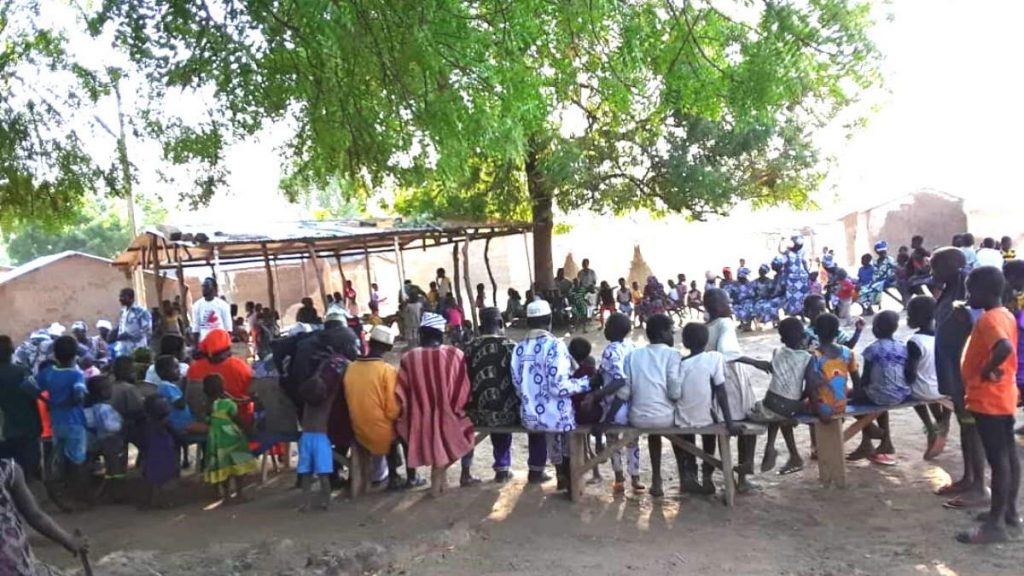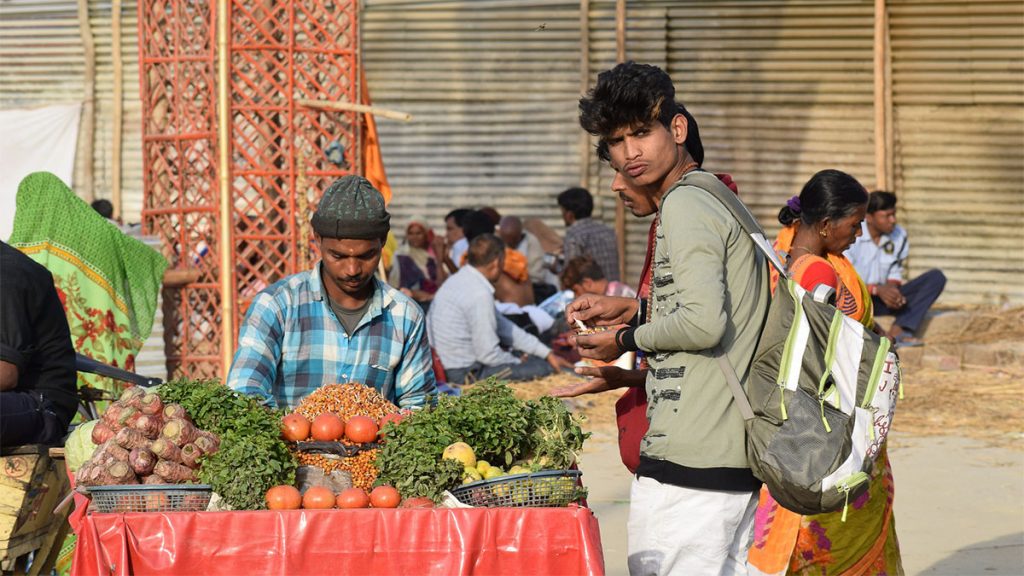
Agents of hope
How graduates in Ghana are transforming communities
2009. James and Albert had just graduated from university. A huge change lay ahead. They packed their belongings and moved to Abrewankor, a village in rural mid Ghana. Abrewankor had no electricity, internet connection or proper road network. The two young graduates were to spend a year teaching at the local junior high school.
It was not going to be glamourous. Most of their friends were doing their national service placement year in the city, in jobs that would better their career prospects. But James and Albert were volunteering as part of the GHAFES Ghana initiative STICS (Short-Term Involvement in Community Service). They wanted to make a difference.
Light in the classroom
The school did not have a good reputation. It often ranked last in the district for its exam results. But slowly, things began to change. James and Albert bought a computer and a diesel generator to provide the students with light in the evenings. Albert used his electrical engineering skills to provide the school with wiring. They also shared the gospel with the students.
At the end of the year, the students’ results were the best ever. The school ranked second in the district league table.
A monumental goal
A year later, four other STICS graduates moved to Abrewankor to continue the work James and Albert had started. Exam results improved further. They then set themselves the goal of producing university graduates by 2015, a huge challenge academically and financially.
To raise the required funding, the STICS team set up the Abrewankor Education Fund and mobilised the community to contribute to it by donating a share of their crops for sale. They also raised funds from GHAFES networks and from their own pockets.
To date, over 80 Abrewankor students have benefited from the fund and 60 students are studying at university. 12 will graduate this year – five of whom are expecting to join the GHAFES STICS program.
Victoria: a lamp, a laptop and a drop-out
Victoria was posted to the local junior high school of Monyupelle in 2009 to teach religious and moral education, as part of the STICS program. Her parents wanted her to find a better placement, but she declined. With a rechargeable lamp and a laptop, she had everything she needed for teaching and evangelism. Every evening the students would gather around Victoria’s lamp to do their homework until the light ran out. Then they would listen as she shared Bible stories with them, before returning to their own homes.
There was one boy, Simon, who would join the students on a regular basis. Victoria found out that he had dropped out of school. She decided to enrol him in their school, aged 14. Simon excelled academically and eventually came top of his class in the final year exams. He is currently awaiting further exam results and would like to study medicine.

Clement: impacting a Muslim community
Clement’s STICS placement was to Zua, a predominantly Muslim community, in 2013. There was no electricity there, no church and no Christian witness – nor were any Christian activities allowed. Clement taught in the school and mobilised the youth for developemental projects in the village. He ran seminars for the young people, where he invited experts to come and speak about different issues in the community.
The chief of the community and his elders recognised the work that Clement was doing. They decided to offically welcome him as a full member of the community and as the Development Chief of Zua.
This has resulted in improved school exam results. Some students are now studying development studies and other degree programs at university. Clement is still a teacher, and is also working on a hospital development project in Zua which will serve Zua and four other communities in the area. The community in Zua have now allowed a church to be planted there.
How STICS came about
In Ghana, all graduates from tertiary institutions must complete a compulsory one-year national service. Most students (and their parents) are keen to secure urban postings to institutions where future job prospects are high. But GHAFES believe that Christian students and graduates can and should make a difference to change the world, given the right support. GHAFES wants its graduates to be models for young people, helping to transform communities for Jesus.
Since the STICS program began in 2009, 159 GHAFES graduates have chosen to take postings in deprived, rural areas. What’s their motivation? Simply a love for Jesus Christ and a deep conviction that they have been called to be agents of hope.
There are currently 35 graduates serving with the STICS program, working in sectors such as agriculture, co-operatives, education, health, church leadership and church planting, local government and rural development.
A model for Ghana
In a recent public lecture organised by GHAFES, the stories of these four STICS graduates were shared, along with several others. Ghana’s Finance Minister was present and gave a short address, requesting 100 such GHAFES graduates to join the country’s revenue department:
“I hope that Ghana will follow GHAFES for its Ghana Beyond Aid agenda (current financial development plan).”


